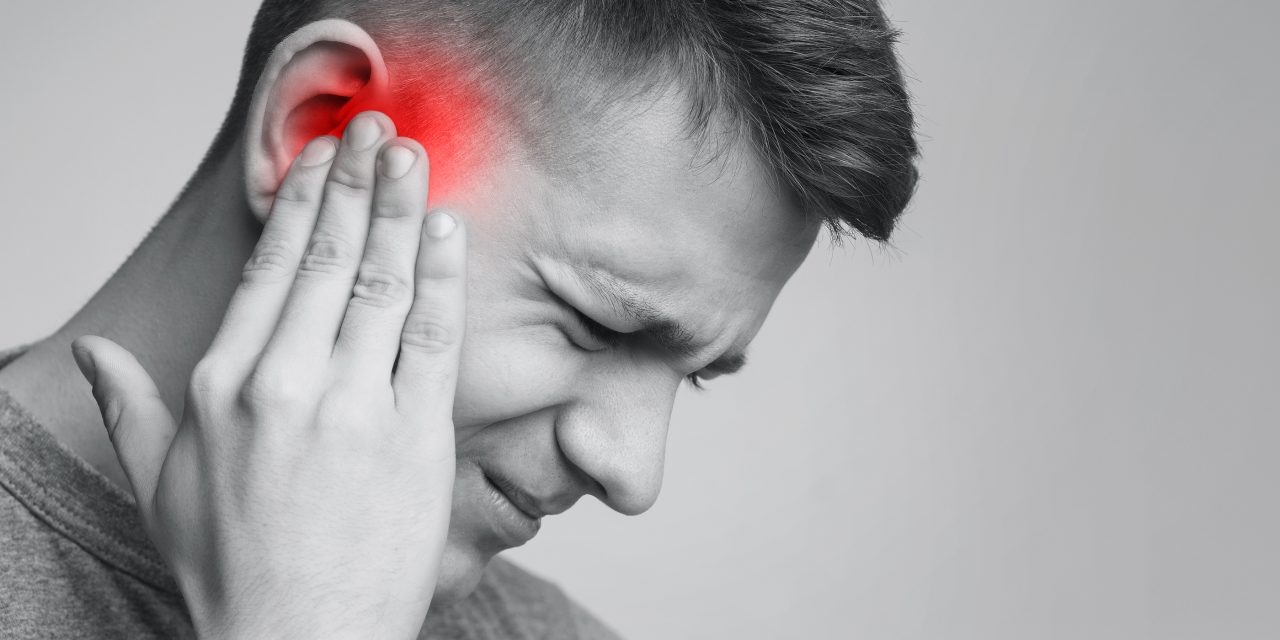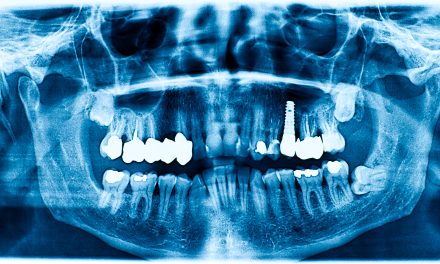Tinnitus, a condition characterized by hearing noises like ringing, buzzing, or hissing that have no external source, can deeply impact a person’s quality of life.
People who experience this condition often find that certain factors make their tinnitus worse.
Loud environments or stress might heighten the symptoms, leading to more noticeable discomfort.
Diet and lifestyle choices can influence how severe tinnitus symptoms become.
For instance, some people report that coffee or tea seemed to make their tinnitus worse. Understanding these personal triggers can be key to managing and potentially reducing the severity of the condition.
In addition, anxiety and depression are often linked with tinnitus, which can create a cycle where fear and stress worsen the symptoms.
Many individuals feel like they’re in a constant battle, striving to find peace amid internal noise. Knowing the potential psychological impact can help in seeking appropriate treatments and support.
Key Takeaways
- Exploring triggers can help manage tinnitus.
- Dietary choices might affect tinnitus symptoms.
- Addressing mental health is crucial in managing tinnitus.
Understanding Tinnitus and Its Symptoms
Tinnitus is a condition where individuals hear sounds like buzzing or ringing in the absence of external noise. These sounds can vary widely and impact people differently.
Understanding the types and symptoms of tinnitus is crucial for recognizing how it affects daily life.
Types of Tinnitus
Tinnitus is generally categorized into subjective and pulsatile types.
Subjective tinnitus is the most common form, where only the affected person can hear the sounds. It is often described as ringing, humming, or clicking.
Pulsatile tinnitus is less common and involves rhythmic noises that often match the heartbeat. Unlike subjective tinnitus, others can sometimes hear these sounds during medical examinations. These differences in types highlight the varied nature of tinnitus experiences.
Common Symptoms and Indicators
The primary symptom of tinnitus is hearing unwanted sounds, such as ringing or buzzing in the ears.
These sounds can vary in volume and may be present in one or both ears.
Other indicators include the perception of clicking or humming, which might fluctuate throughout the day. The intensity of these sounds can impact concentration and sleep quality, leading to increased stress.
For many, tinnitus persists indefinitely, especially if it lasts more than two years, which can signify a permanent condition. It is essential to pay attention to these indicators and seek medical advice if tinnitus affects daily life or worsens over time.
Common Causes and Triggers
Tinnitus can worsen due to several factors including exposure to loud noises, certain medications, and various health conditions. Each of these can play a significant role in how tinnitus develops and intensifies.
Impact of Loud Noises
Regular exposure to high levels of sound is a leading cause of tinnitus. Loud noises from concerts, machinery, or headphones can damage the inner ear, leading to tinnitus symptoms.
This damage often occurs because the hair cells in the cochlea become injured due to prolonged noise levels. Once damaged, these hair cells do not regenerate, resulting in permanent effects.
It is crucial for individuals to use ear protection in noisy environments and limit headphone use to safer volume levels to avoid worsening symptoms. Such preventive steps can be effective in managing noise-induced tinnitus.
Medication-Induced Tinnitus
Some medications are known to contribute to tinnitus. Certain antibiotics, cancer drugs, and NSAIDs (non-steroidal anti-inflammatory drugs) can have this side effect.
Medications can cause changes in hearing by impacting the auditory pathways or altering nerve activity. Patients experiencing tinnitus after starting a new medication should consult their healthcare provider for advice.
Often, adjusting the dosage or switching to a different drug can alleviate symptoms. Awareness of potential medication side effects is essential for those susceptible to tinnitus to ensure their condition is not exacerbated.
Underlying Health Conditions
Various health conditions can trigger or worsen tinnitus symptoms. Problems such as high blood pressure, diabetes, or ear infections can influence auditory functions.
Additionally, temporomandibular joint (TMJ) disorders and mental health issues like stress or anxiety can also be contributing factors.
Addressing these underlying conditions is important for managing tinnitus. Healthcare professionals may perform comprehensive assessments to identify and treat the root cause of the auditory disturbance.
By managing the underlying health issues, individuals can often find relief from their tinnitus symptoms, making it easier to lead a comfortable life.
The Connection Between Tinnitus and Lifestyle
Tinnitus, a condition characterized by ringing or buzzing in the ears, can be influenced by various lifestyle factors. Diet, exercise, and substances like alcohol and caffeine play critical roles in its management.
Dietary Considerations
Diet can directly impact tinnitus. High-sodium diets may raise blood pressure, potentially worsening tinnitus symptoms.
Reducing salt intake and focusing on whole foods like fruits, vegetables, and lean proteins can be beneficial.
Additionally, foods rich in antioxidants, such as berries and leafy greens, might help reduce inflammation, which can impact tinnitus severity. Omega-3 fatty acids found in fish like salmon might also provide supportive benefits.
Exercise and Tinnitus Management
Regular physical activity can improve overall health and potentially reduce tinnitus symptoms.
Exercise promotes better blood circulation, which might help diminish the intensity of tinnitus sounds.
Activities like walking, cycling, or yoga can contribute positively. It’s important to find a consistent routine.
Stress, which can exacerbate tinnitus, may also be managed better through regular exercise.
Aiming for at least 30 minutes of moderate activity most days of the week can be beneficial.
Alcohol, Caffeine, and Nicotine Impact
Alcohol consumption may influence tinnitus by affecting blood flow in the inner ear. While moderate drinking might not have significant effects, excessive consumption could worsen symptoms.
Caffeine intake, often found in coffee, tea, and chocolate, might heighten tinnitus for some individuals by stimulating the central nervous system. Reducing caffeine can sometimes lead to improvement.
Nicotine from smoking is a known risk factor. It reduces blood flow to the ear, potentially increasing tinnitus severity.
Reducing or quitting smoking may help lessen tinnitus symptoms and improve overall ear health.
Psychological and Emotional Impact
Tinnitus can significantly affect mental health, playing a role in increasing stress and anxiety levels. These emotional responses can, in turn, impact the severity of tinnitus symptoms, creating a challenging cycle for individuals.
Tinnitus and Mental Health
Tinnitus has been linked to various mental health issues, including depression and anxiety.
Individuals with tinnitus often struggle with its persistent ringing or buzzing, which can interrupt daily life. Research has shown that tinnitus may be associated with depression, as it can lead to feelings of isolation and helplessness.
Individuals often report a negative change in mood and a decrease in their overall quality of life.
The emotional burden of managing tinnitus might cause people to feel overwhelmed. Difficulty finding relief from symptoms can further contribute to mental health problems.
Therefore, it is essential to address mental health as a critical part of managing tinnitus effectively. Mental health support, like therapy or counseling, can provide strategies to help cope with the emotional effects.
Stress and Anxiety as Contributing Factors
Stress and anxiety are significant factors that can worsen the experience of tinnitus.
High stress levels can intensify the perception of tinnitus, making the sounds seem louder and more persistent.
When stressed or anxious, individuals may find it more challenging to ignore the tinnitus sounds, which can exacerbate their discomfort.
Anxiety can also affect sleep, leading to fatigue and irritability. This lack of rest can create a vicious cycle, as tiredness often increases sensitivity to tinnitus.
Stress management techniques such as mindfulness, exercise, or relaxation techniques can be beneficial in reducing the impact of tinnitus on daily life. Addressing anxiety can help individuals regain control and improve their overall well-being.
Hearing Loss and Auditory Problems
Hearing loss can worsen tinnitus, making it more difficult for sufferers to manage the condition. This section explores the connections between hearing loss and tinnitus, focusing on age-related issues and specific medical conditions.
Age-Related Hearing Loss
Age-related hearing loss, or presbycusis, commonly affects older adults. As people age, their auditory nerve and inner ear structures can deteriorate, leading to gradual hearing loss.
This condition can make tinnitus more prominent because the brain may try to fill the silence caused by reduced hearing with phantom noises. Presbycusis can affect one or both ears and often leads to difficulty in hearing high-pitched sounds.
In some cases, the progression is so slow that individuals are unaware of their hearing loss, but they notice a worsening of their tinnitus.
Following a diagnosis of presbycusis, hearing aids can help reduce tinnitus symptoms by amplifying external sounds and reducing reliance on the brain’s internal noise generation.
Acoustic Neuroma and Other Conditions
An acoustic neuroma is a benign tumor that develops on the vestibulocochlear nerve, which connects the inner ear to the brain. This condition can cause hearing loss, tinnitus, and balance problems.
The tumor may press on the auditory nerve, resulting in auditory issues, including constant ringing or buzzing sounds. Individuals with acoustic neuroma often experience unilateral hearing loss, meaning it affects only one ear.
Treatment options may include monitoring, surgery, or radiation, depending on the tumor’s size and growth rate.
While removing the tumor might alleviate some symptoms, it can sometimes lead to further hearing loss, impacting tinnitus severity. Other medical conditions like Meniere’s disease or otosclerosis can also cause auditory problems that contribute to tinnitus.
Evaluating and Diagnosing Tinnitus
Understanding when to see a doctor and knowing the diagnostic methods is crucial for managing tinnitus. Recognizing triggers and exploring treatment options like hearing aids can aid in addressing this condition effectively.
When to Consult a Doctor
Tinnitus might seem like a minor annoyance, but there are times when consulting a doctor becomes necessary.
If the ringing in the ears is interfering with daily life or causing stress and anxiety, professional advice should be sought. This is especially vital if the tinnitus is sudden or unexplained.
Further evaluation by a healthcare provider can help identify triggers and underlying conditions that might be contributing to the worsening symptoms.
Doctors can help tailor treatment to individual needs. Persistent tinnitus, which lasts beyond a few days, should not be ignored. A medical professional can offer guidance on potential treatment options, such as sound therapy or the use of hearing aids.
Available Diagnostic Methods
There are several ways to diagnose tinnitus, which can help pinpoint its cause.
One common method is a hearing test, which assesses hearing ability and checks for any hearing loss. In some cases, an audiogram might be used to provide a more detailed view.
Imaging tests like MRIs or CT scans are sometimes recommended to rule out structural causes. Doctors may also conduct a tinnitus matching test to determine the specific sound and frequency a patient hears.
By using these tools, healthcare providers can develop a personalized plan to address and manage tinnitus effectively. For further reading, consult resources like the clinical evaluation of tinnitus.
Tinnitus Treatment and Management Strategies
Managing tinnitus often involves a combination of therapies and devices tailored to the individual’s needs. Key strategies include sound and behavioral therapies, hearing aids, and alternative techniques like acupuncture.
Therapies for Tinnitus Relief
Tinnitus retraining therapy (TRT) is a popular method. It combines sound therapy with counseling to help individuals adapt to their tinnitus.
Behavioral therapy, especially cognitive behavioral therapy (CBT), is used to address the emotional response to tinnitus.
These therapies aim to reduce stress and improve quality of life. They often involve techniques that teach coping mechanisms and alter the perception of tinnitus.
Biofeedback is another approach, where patients learn to control body functions like heart rate to reduce stress.
Hearing Aids and Tinnitus
Hearing aids are beneficial for those with hearing loss and tinnitus. By amplifying external sounds, they help mask the ringing or buzzing in the ears. This can reduce the intensity of tinnitus for many patients.
Modern hearing aids often come with specialized programs for tinnitus management.
They can be customized to play soothing sounds that aid in masking the tinnitus noise. This accessibility makes hearing aids a crucial tool for many dealing with tinnitus, offering both hearing improvement and potential relief from tinnitus symptoms.
Alternative and Complementary Therapies
Complementary therapies such as acupuncture and mindfulness practices are regularly explored by those with tinnitus.
Acupuncture aims to balance the body’s energy and has shown promise in alleviating symptoms for some individuals.
Mindfulness and relaxation techniques help manage the stress and anxiety often associated with tinnitus. These methods encourage patients to adopt a more relaxed and accepting attitude toward their tinnitus, possibly reducing its perceived impact.
While not a cure, these approaches can complement traditional treatments in a comprehensive management plan.
Prevention and Long-Term Management
Managing and preventing tinnitus involves using hearing protection and making lifestyle changes. These strategies can help reduce the impact of tinnitus and improve the quality of life for those affected.
Protective Measures and Hearing Conservation
Using protective gear like earplugs or earmuffs can be effective in preserving hearing.
Limiting exposure to loud environments, such as concerts or construction sites, is also crucial. Employers often provide hearing conservation programs to help safeguard against hearing loss.
Awareness about noise levels is vital. Regular check-ups with an audiologist can help monitor hearing health.
These steps are essential for a long life with tinnitus, ensuring that the condition does not worsen over time. Investing in sound-measuring apps can also be helpful.
Lifestyle Adjustments for Tinnitus Prevention
Adopting certain lifestyle habits can help manage tinnitus.
Reducing caffeine and nicotine intake may lessen symptoms. Regular exercise and stress management techniques, like yoga or meditation, are also beneficial.
Creating a quiet sleep environment and using sound machines can improve sleep quality. Staying hydrated and maintaining a balanced diet support overall ear health.
Encouraging social support and discussing coping strategies can enhance emotional well-being, offering a holistic approach to prevention and management.
Frequently Asked Questions
Understanding tinnitus involves exploring what can make it worse, underlying causes, and potential ways to prevent it. Several factors such as body position, age, and lifestyle can impact the severity of this condition.
Can certain positions, like laying down, make tinnitus symptoms more pronounced?
Yes, certain positions can affect tinnitus symptoms.
Laying down might increase pressure in the ear and cause blood flow changes, which could make tinnitus sounds more noticeable. Changes in head position or lying down might also affect how people perceive the ringing or buzzing.
What factors might cause tinnitus to worsen abruptly?
Abrupt worsening can happen due to exposure to loud noises, stress, or certain medications. Ear infections or injuries might also lead to sudden changes.
It is important to identify and manage any factors or triggers that could contribute to this sudden change.
Is there a correlation between aging and the progression of tinnitus?
Aging can play a role in tinnitus progression.
Age-related hearing loss is a common contributor, as it might lead to more noticeable tinnitus. The changes in ear structure and function that occur with age could influence how the condition develops over time.
What are the indications that tinnitus is improving?
Improvement might be noticed as a decrease in the loudness or frequency of the noise. Reduced impact on daily activities is another sign.
Better management of stress and anxiety associated with tinnitus might indicate progress as well.
What steps can be taken to prevent tinnitus from worsening?
To prevent worsening, avoiding loud environments and using hearing protection is key.
Reducing stress through relaxation techniques and maintaining a healthy lifestyle can help. Regular ear check-ups may also assist in managing the condition more effectively.
Is there a link between tinnitus and underlying health risks?
Tinnitus can be linked with other health issues such as hearing loss, high blood pressure, or circulatory problems.
Underlying health conditions might contribute to tinnitus symptoms, making it essential to address any potential health risks with a healthcare provider.


















